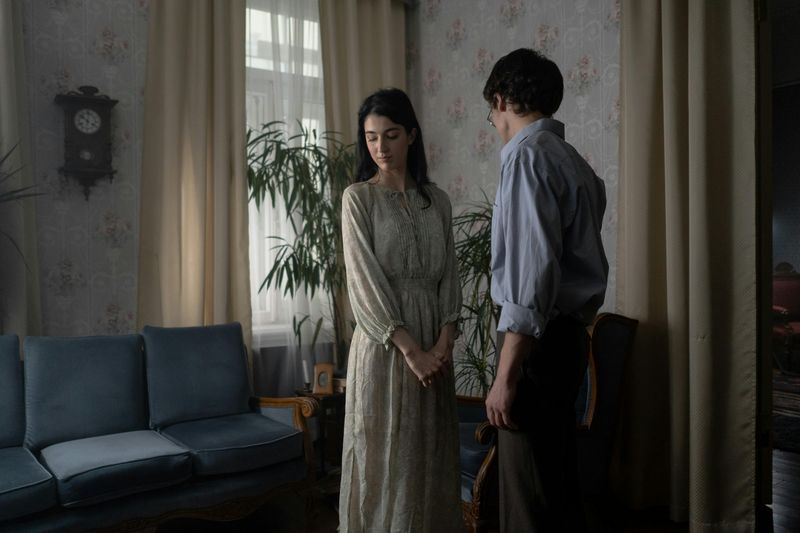8 Signs He’s Afraid to Fall in Love

Love can be scary, especially for someone who’s been hurt before. When a guy has walls up around his heart, he might show it in ways that leave you confused. Understanding these signs can help you navigate your relationship better and maybe even help him open up. Here’s what to look for if you suspect he’s keeping his guard up.
1. He Pulls Away When Things Get Serious

Just when everything seems perfect, he suddenly becomes distant. Phone calls get shorter, date nights get canceled, and that good morning text you used to wake up to? Gone. This behavior isn’t necessarily about losing interest.
What’s really happening is his internal alarm system going off. As emotions deepen, his fear of vulnerability kicks in, and his instinct is to create space before he gets in too deep.
Pay attention to the timing—does he withdraw after meaningful conversations or intimate moments? That’s his fear talking. Some guys need this space to process their feelings, while others are simply running from them.
2. He Keeps His Feelings Vague

“I’m having a good time with you” instead of “I’m falling for you.” Sound familiar? A man afraid of love becomes a master of emotional ambiguity, carefully choosing words that can’t be pinned down later.
You might notice he changes the subject when feelings come up or turns heartfelt moments into jokes. This emotional dodging isn’t random—it’s a well-practiced defense mechanism.
By keeping things fuzzy, he creates an escape hatch if things get too real. Watch for those half-answers and deflections. When you express your feelings, does he acknowledge them but never quite reciprocate? That’s his fear of emotional commitment showing.
3. He Avoids Labels

“What are we?” Three simple words that send him into panic mode. Months go by, and you’re still in relationship limbo—not quite friends, definitely more than casual, but he won’t call you his girlfriend.
This resistance to labels comes from a place of fear. Once something has a name, it becomes real and carries expectations. For someone afraid of love, keeping things undefined feels safer than committing.
Notice how he introduces you to others—as a friend? By your name only? Or does he awkwardly avoid introductions altogether? These subtle clues reveal his comfort level with acknowledging your relationship publicly. Remember, his reluctance isn’t necessarily about you but about what those labels represent to him.
4. He Sends Mixed Signals

Monday, he’s planning weekend trips and talking about meeting his parents. By Thursday, he’s “too busy” and takes hours to text back. This emotional rollercoaster isn’t just confusing—it’s revealing.
Hot and cold behavior often signals an internal battle. Part of him craves connection and intimacy, while another part is terrified of what happens if he fully surrenders to those feelings. The result? You get whiplash from his inconsistent behavior.
Look for patterns in his hot-cold cycles. Does he pull back after moments of closeness? That’s when his fear is strongest. Understanding this doesn’t excuse the behavior, but it helps explain why the sweet, attentive guy can suddenly transform into someone distant and unavailable.
5. He Distracts with Work or Hobbies

“Sorry, big project at work” becomes his catchphrase just as your relationship deepens. Suddenly, his schedule fills with overtime, gym sessions, or nights out with friends—anything to keep him busy and elsewhere.
This strategic busyness serves as an emotional buffer. By filling his calendar, he creates a legitimate excuse to limit intimacy without having to admit his fears. It’s not that these activities aren’t important—they are—but their timing and intensity reveal their true purpose.
A telltale sign: he’s available during casual, fun times but mysteriously swamped when deeper connection opportunities arise. Ask yourself whether his busy schedule started before you met or conveniently appeared when things got serious. The answer might reveal whether it’s genuine commitment elsewhere or avoidance of commitment to you.
6. He Has a Guarded Past

Ever feel like you’re dating a mystery novel? He drops hints about past heartbreak but changes the subject when you ask questions. His romantic history exists in vague outlines and carefully edited stories.
This secrecy isn’t necessarily about hiding skeletons. Often, it’s about protecting old wounds that haven’t fully healed. When someone has experienced relationship trauma, talking about it means reliving it—and acknowledging the possibility of history repeating itself.
The more tightly he guards his past, the more it likely still affects him. Pay attention to those moments when he almost opens up but then retreats. Those glimpses reveal what he’s truly afraid of. A man who can’t discuss previous relationships openly may be carrying unresolved pain that’s blocking his ability to fully embrace new love.
7. He Hesitates to Introduce You to His Inner Circle

Six months in, and his mom still thinks he’s single. His best friends have heard your name but never seen your face. This isn’t just oversight—it’s a boundary he’s consciously maintaining.
Bringing someone into your personal world is a significant step. It signals investment and acknowledges the relationship’s importance. For a man afraid of love, this integration feels like a point of no return.
Family gatherings and friend reunions aren’t just social events—they’re relationship milestones. When he keeps these worlds separate, he’s creating emotional insurance. Without these connections, it’s easier to walk away if his fears become overwhelming. If he introduces you as “my friend” or seems anxious when you interact with important people in his life, his heart is still in protective mode.
8. He Pushes You Away When You Get Too Close

The moment you share your deepest feelings or show vulnerability, something shifts. Suddenly he finds fault with small things, picks arguments over nothing, or becomes emotionally unavailable. This sabotage has perfect timing—it always happens when intimacy peaks.
This pushing away isn’t about not caring. Paradoxically, it’s because he cares too much and that terrifies him. When emotions intensify, so does the potential for pain. His defensive reaction is to create problems before his heart gets fully invested.
Watch for this pattern: meaningful connection followed by manufactured distance. Sometimes it’s subtle—like suddenly bringing up differences in your life goals after a particularly close weekend. Other times it’s obvious—like disappearing for days after you say something heartfelt. Either way, it’s fear disguised as conflict.

Comments
Loading…